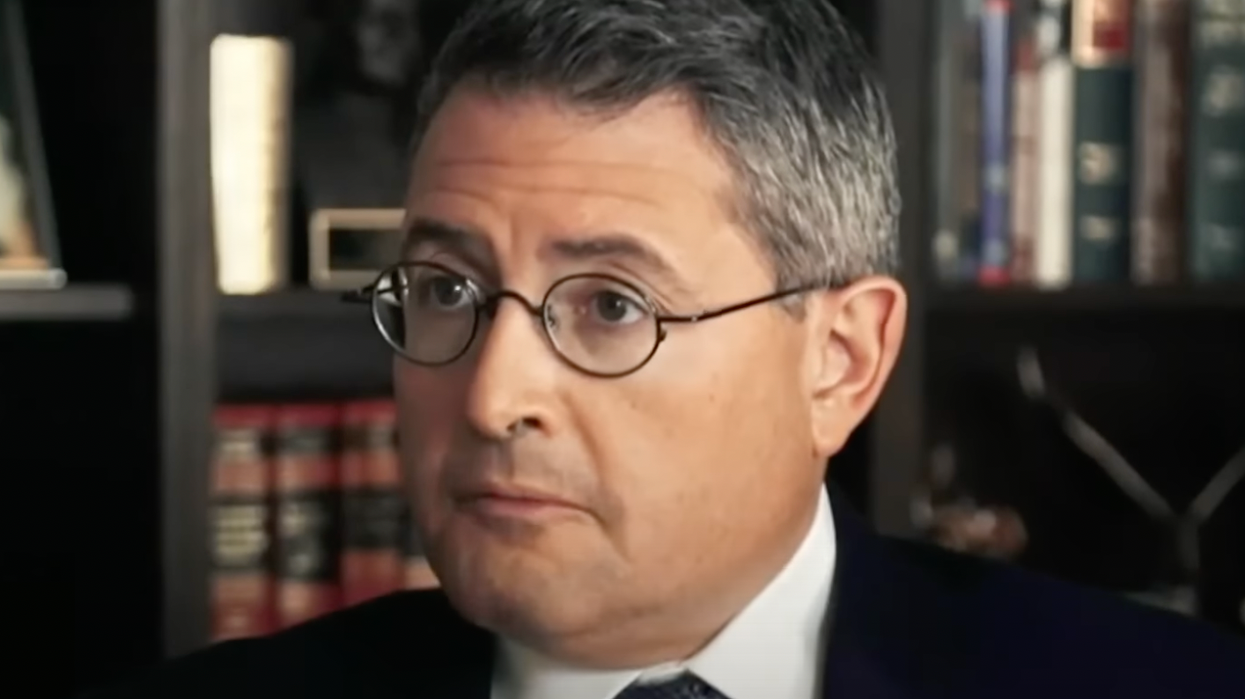How GOP activists sway SCOTUS to boost 'their historical narrative' with 'no real vetting process': report

Federalist Society leader Leonard Leo, Image via screengrab/MSNBC.
December 03, 2023 | 12:35PM ETBank
Far-right groups connected to United States Supreme Court conservative justices are actively using "amicus briefs to support their historical narrative," according to a Sunday POLITICO report by Washington DC journalist Heidi Przybyla.
She reports, "A POLITICO review of tax filings, financial statements and other public documents found" conservative billionaire activist and Federalist Society leader Leonard Leo "and his network of nonprofit groups are either directly or indirectly connected to a majority of amicus briefs filed on behalf of conservative parties in seven of the highest-profile rulings the court has issued over the past two years."
Przybyla writes, "It is the first comprehensive review of amicus briefs that have streamed into the court since Trump nominated Justice Amy Coney Barrett in 2020, solidifying the court's conservative majority. POLITICO's review found multiple instances of language used in the amicus briefs appearing in the court's opinions."
POLL: Should Trump be allowed to hold office again?
The DC journalist notes, "Around the turn of the 20th century in America, there was a shift to amicus briefs becoming vehicles for parties who felt a stake in the case but weren't among the official litigants."
William and Mary Law School constitutional law expert Allison Orr Larson told the news outlet, "Justices appointed by both Democrats and Republicans over the past decade have come to rely on amicus briefs, including those funded by advocacy groups, for 'fact-finding,'"
She said, "There's no real vetting process for who can file these amicus briefs," and judges "accept these historical narratives at face value."
Pryzbyla reports:
Princeton Professor Robert P. George, a leader of the conservative legal movement and confidant of the judicial activist and Donald Trump ally Leonard Leo, made the case for overturning Roe v. Wade in an amicus brief a year before the Supreme Court issued its watershed ruling.
Roe, George claimed, had been decided based on 'plain historical falsehoods.' For instance, for centuries dating to English common law, he asserted, abortion has been considered a crime or 'a kind of inchoate felony for felony-murder purposes.'
READ MORE: Federalist Society leader’s 'lavish' lifestyle under scrutiny after $43 million dark money transfer
"In law reasons are everything. Rationale is our currency. It matters that they're using the briefs to justify themselves," Larsen added. "They’re looking to amicus briefs to support their historical narrative."
Przybyla also notes:
The campaign to fund and promote amicus briefs is but one facet of Leo's broader advocacy architecture built around state and federal courts.
But it's of special relevance at this moment in the court's history. Since Leo's handpicked justices solidified the court's conservative supermajority in 2020, they are agreeing to hear cases advanced by his allies and ruling in favor of many of his Christian conservative priorities.
Furthermore, Przybyla adds, "Given the opaque nature of Leo's network, it's difficult to tally up just how much money has been spent on conservative legal advocacy linked to him. Yet just the two leading groups in his funding network, The Concord Fund and The 85 Fund, spent at least $21.5 million between 2011 and 2021 on groups advocating for conservative rulings."
Politico's full report is available at this link.